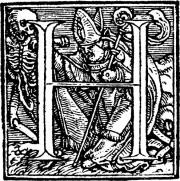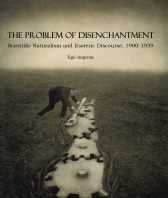 In 2009 a fat and promising book landed on my desk, fresh from the publisher. I had looked forward to it for a while, as the topic was highly relevant for my dissertation, and this was the first full-length academic study ever to look at it. It was furthermore written by an author whose articles on the same topic I had been following for a while, with great interest. The book was Heather Wolffram’s Stepchildren of Science: Psychical Research and Parapsychology in Germany, c. 1870-1939. I was going to write a book review for Aries, which I did. It only appeared this spring, however. Since it is already three years ago that the book was published, I think it is about time to share the review with a broader community. So please find the pre-publication version of the review below.
In 2009 a fat and promising book landed on my desk, fresh from the publisher. I had looked forward to it for a while, as the topic was highly relevant for my dissertation, and this was the first full-length academic study ever to look at it. It was furthermore written by an author whose articles on the same topic I had been following for a while, with great interest. The book was Heather Wolffram’s Stepchildren of Science: Psychical Research and Parapsychology in Germany, c. 1870-1939. I was going to write a book review for Aries, which I did. It only appeared this spring, however. Since it is already three years ago that the book was published, I think it is about time to share the review with a broader community. So please find the pre-publication version of the review below.
Parapsychology in Germany – review of Heather Wolffram’s Stepchildren of Science (2009)
Blind Spots of Disenchantment (2/3)
Following up the previous post about Weber’s notion of disenchantment, and its normative implications, this second part of the installment provides some snapshots of episodes in the early 20th century – that is, of Weber’s contemporaries – which all seem to be in conflict with the disenchanted perspective of science. We start by considering some episodes in physics, then move on to the life sciences, before ending with some remarks on the controversial borderland which is psychical research.







